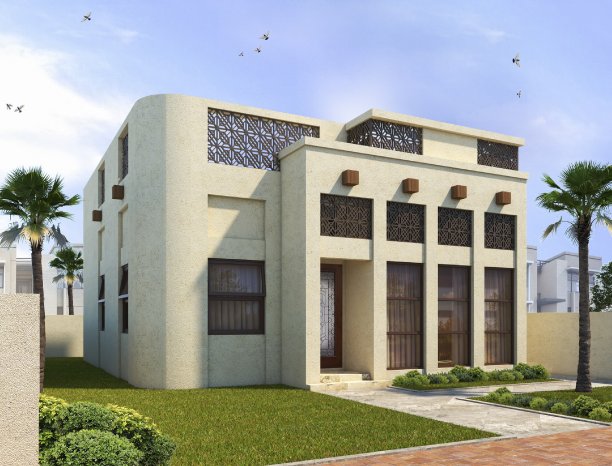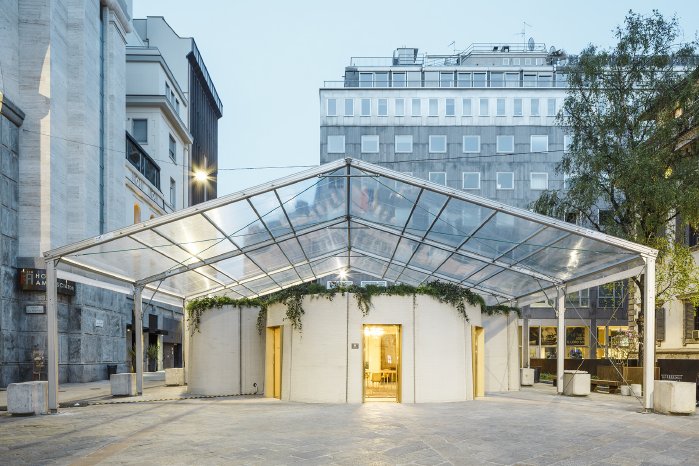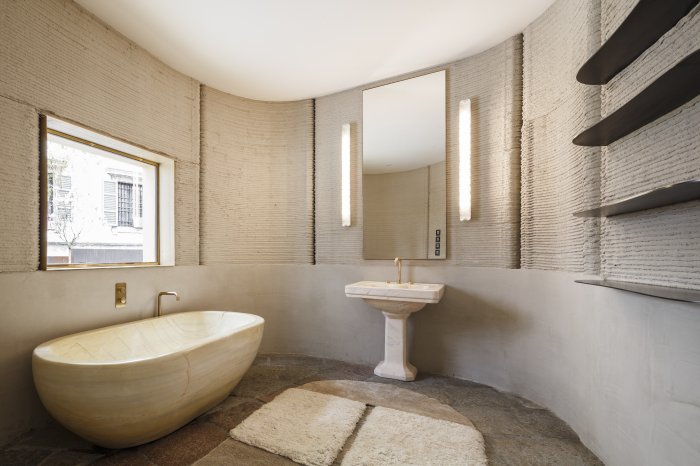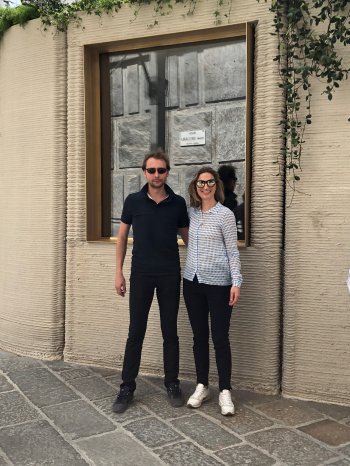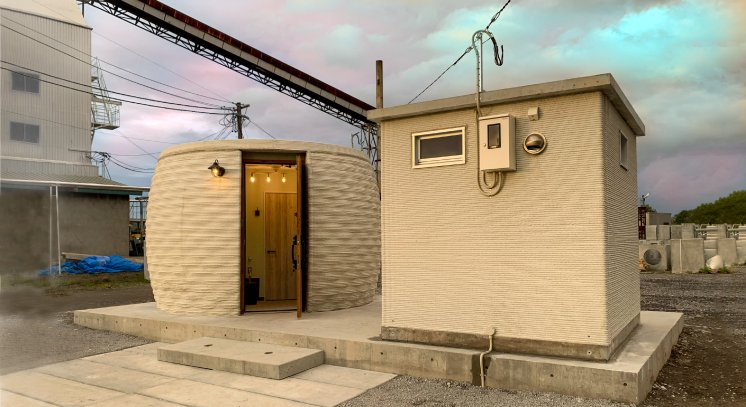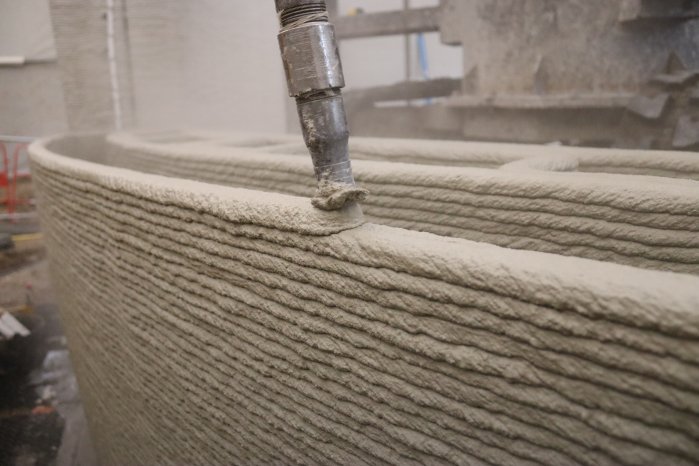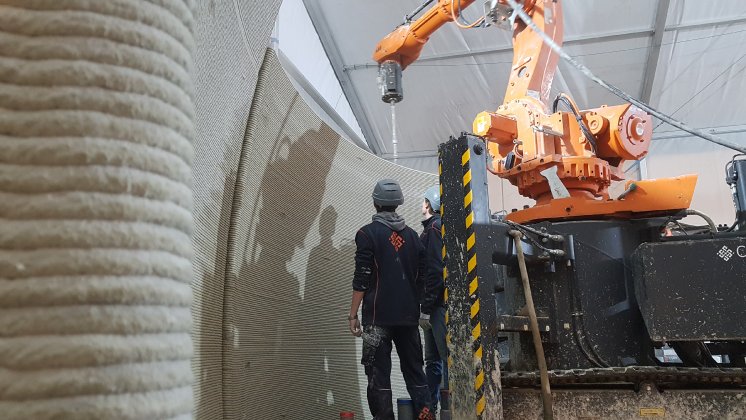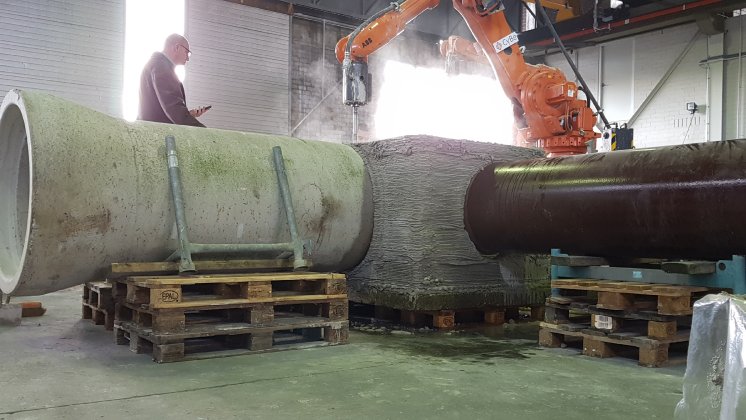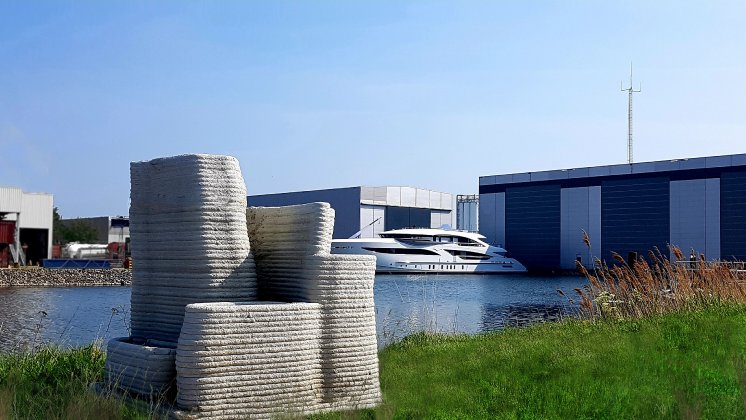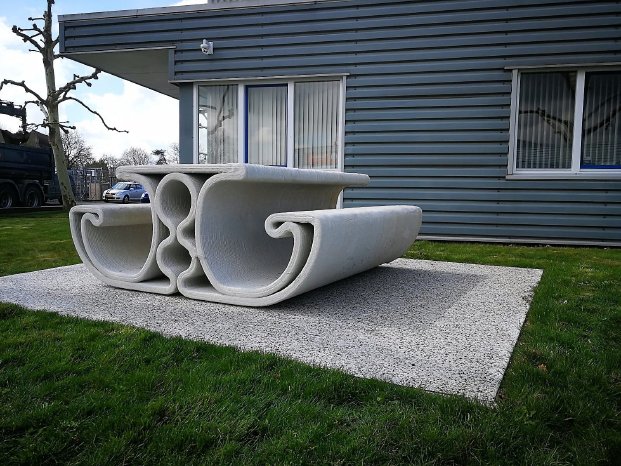Since 2012, this medium-sized Bavarian company and the Dutch civil engineering experts have been running their joint-venture, and have already completed a variety of quite sensational residential buildings. “We implemented our first joint project, a residential construction in Dubai, in the desert under the most difficult conditions. Since then, even more exciting properties have been added to this, for example in India, Japan, Indonesia and Saudi Arabia. After putting in years of lab work on the task of perfecting our 3D printing method, this combination of robotics and intelligent mortar has been refined even further. In the process, we have not only gained new insights into the most efficient methods of construction, but have also explored completely new possibilities for applications”, says Frank Sander, Technical Manager at Korodur International GmbH.
Efficient, fast and inexpensive
The CyBe MORTAR, a mortar designed specially for 3D printing, is applied layer by layer in this process by means of robots, in a short time forming a wall or column with a high load-bearing capacity. CyBe’s 3D printers reach a speed of up to 500 mm/s. Thanks to the CyBe MORTAR building material developed by Korodur, units can be manufactured in one complete piece. Via the integration of an additive, the concrete can solidify very quickly, thus reducing the printing time significantly.
The particular advantages of this method are, on the one hand, a considerably shortened construction time and the cost savings involved. On the other hand, it offers architects and planners completely new design options that go beyond those of conventional construction. The buildings created in this way can be replicated any number of times with identical floor plans or simply adjusted as appropriate to cater for varying circumstances and requirements.
The 3D printing robots can be used, as required, on the actual construction site or for the prefabrication of components in an arbitrarily located workshop. In addition, there are mixed forms in which a robot close to the actual construction site produces various tailor-made components.
Sustainable, versatile and variable
“The possibilities for application are practically endless! Accurately-fitting service shafts are produced and installed on site in the shortest possible time lags using this innovative technology, for example, allowing damaged conduit access assemblies and connections to be replaced quickly. In addition, we have already created seating areas as well as combinations of tables and benches for outdoor use. Their exceptional design plus high degree of durability and stability all carry conviction. In any case, sustainability has always been a labour of love for us. A quite spectacular application in this context is the use of the product for the construction of artificial reefs. Thus, at critical locations we would like to help to revive the marine environment and assist the animals, plants and, in particular, corals in developing new habitats”, Frank Sander explains.
There are other ways, too, in which the Korodur/CyBe process contributes to climate and environmental protection – namely, in terms of its CO2 footprint: the quantity of carbon dioxide obtained during the production of the solely mineral CyBe MORTAR “made in Germany” is at least 20 per cent lower than that produced by conventional Portland cement. Nikola Heckmann, Korodur’s CEO, says emphatically: “This is an essential part of our corporate philosophy. We consider the careful use of resources and the reduction of emissions to be fundamental to our future viability. For the same reason we are committed to the development of new technologies and processes. This also includes our 3D concrete printing process, with which we have positioned ourselves not only in Europe but throughout the world as an innovative and reliable partner to the construction industry”.
Up-to-date information on CyBe MORTAR procedures and applications is presented for architects, planners, developers and other companies from the real estate sector on the site www.3d-concrete-printing.com.
Further information: www.3d-concrete-printing.com; www.korodur.de; https://cybe.eu
